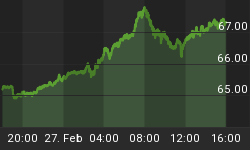"How did you go bankrupt?" "Two ways, gradually and then suddenly" - Ernest Hemingway, The Sun also Rises
Senate majority leader Harry Reid is on C-SPAN this morning lamenting the republicans' unwillingness to negotiate even after Reid and his party agreed to what they consider to be painful cuts. "[Speaker of the House] John Boehner won't take 'yes' for an answer," Reid keeps repeating.
Lately, business-as-usual federal budgets have been getting harder to pass because a few dozen congressional districts have elected people who simply don't want to vote for more debt and believe they can keep their jobs even if they close down the government. The result is a fascinatingly concrete form of protest, an "occupy" movement that takes over the legislature instead of a park or street. Finally, "extend and pretend" is getting a little push-back.
So now we have budgeting by sequester, where a handful of programs are cut by some prearranged amount when a predetermined deadline is passed. Since the main priorities of the big parties (Social Security and Medicare/Obamacare for democrats, the global military empire and corporate welfare for republicans) are off the table, the cuts fall hardest on discretionary items like national parks, after-school programs, first responder funding and scientific research. In other words, things that affect narrow rather than broad sections of the population.
This is the "gradual" part of the process that Hemingway alluded to in the quote that opens this article. An over-indebted country sinking into poverty does so a little at a time, by stiffing the people it can get away with stiffing rather than the people who deserve to be stiffed. Parks get shabbier, roads rougher, police and fire protection less certain. For regular people life becomes less certain.
But of course (irony alert) the real victims are the politicians who have grown used to spending play money and then running for re-election on their generosity. They're suddenly faced with limited funds and the need to prioritize. And they're finding that they've lost that skill. They have no idea how to stand before an audience and tell hard truths, perhaps because they've literally never done it. Think about it: Harry Reid and Nancy Pelosi - and for that matter their main Republican counterparts - have never in their careers had to take anything away from a major constituency. They've always been able to find the money.
Now they're beginning to realize what an unnaturally easy gig they used to have. Being a politician is suddenly hard, unpleasant work, and the current crop is, not surprisingly, terrible at it.
Give incompetent leaders insufficient money and the inevitable result is a chaotic mess. Programs that are on auto-pilot will go up, programs that are subject to automatic cuts will go down, voices will be raised in anger, and the system will drift further into dysfunction. This isn't an accident. It's just what happens when a rich, spoiled society runs out of money. Things that used to be easy become hard and what used to be hard becomes impossible. And a whole generation finds itself in 1930 wondering how to get back to 1929.
Pretty soon the pain of the current stalemate will become overwhelming and some new coalition will form to raise the debt ceiling and buy another two years of fantasy spending. In 2015 the drama will repeat, and life will get even tougher for park rangers and librarians. And so on.
If this is the gradual part of the bankruptcy process, what's the "sudden" part? Probably the next big crisis, which will reveal that we're out of ammo. In the late 1970s and early 1980s, for instance, the government responded to surging inflation by raising interest rates to double-digits and accepting a nasty recession to stabilize the dollar. Could we do that again? Not a chance. Most of the world now depends on low interest rates and would implode if rates were to rise much from here.
In 2008, the US met the banking/mortgage crisis by pushing interest rates down to zero and giving the big banks an extra trillion dollars of free money each year, while Europe and Japan chipped in with their own, nearly-as-generous QEs. Could we do all that again if JP Morgan Chase's derivatives blow up next week? Not likely, since interest rates are already near zero and the US federal debt is twice what it was back then.
So "gradually" will continue until "suddenly" happens.















